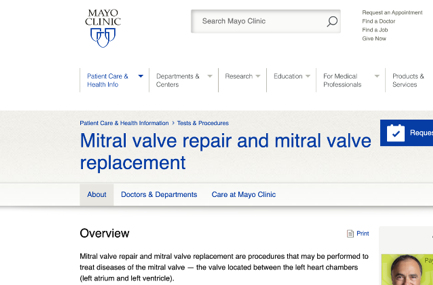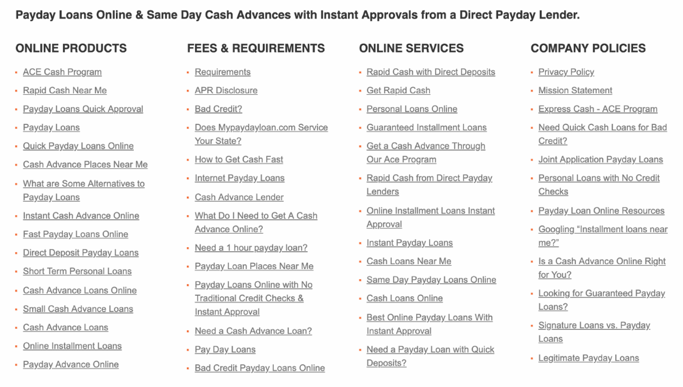SEO myths and misunderstandings abound in the digital marketing world.
Although a little truth may be buried in some of these misconceptions, it’s best to understand the nuances. Here’s my advice: Focus first on your users and play fair with search engines. Then you won’t need to worry whether you’ll be kicked off Google.
Here’s a closer look at seven SEO myths.
Myth 1: Focus on quality content and topics, not keywords
Of course you should have quality content. Why wouldn’t you? But is that a good way to approach SEO?
Your quality content may not rank well on Google. Other websites – not yours – will get traffic for relevant keywords. Figure out what key phrases you can rank for rather than just assuming your best content will land you the top spots. I explore the value of keywords and rankings in this CMI article: 2019 SEO Keywords and Google: What’s in Your Poker Hand?
Myth 2: Google will delist your site for keyword stuffing
I’m convinced Google has nabbed some nasty marketers, but it’s hard to say Google will delete you from its databases because of keyword stuffing. Should you overuse keywords without fear? I wouldn’t risk it. Keyword stuffing is subjective. If you’re providing a good user experience, then don’t fret.
Is Google going to remove Mayo Clinic for mentioning “mitral valve” 63 times among 1,945 words in this educational article? I doubt it.

After all, Google doesn’t seem to have an issue with this payday loans website. The home page ranks No. 1 for “payday advance” with 33,000 monthly searches on Google.
A core part of the home page includes this set of internal links. Is it a set of useful topics or keyword stuffing?

If you come across questionable practices, you can submit a Google spam report.
Myth 3: Google penalizes duplicate content
It’s not always easy to measure any duplicate content penalty. I wouldn’t worry about some repetitive text on your website, especially if you have hundreds of pages.
Duplicate content is a bigger issue with e-commerce websites that struggle to avoid the same product descriptions on countless websites. One remedy is to create unique descriptions and other details on strategic pages. E-commerce websites can also work on their domain authority by attracting more quality backlinks. Overall domain authority can improve rankings.
Moz provides a domain authority score between one and 100. I suspect that the Restoration XP website (see screenshots below) ranks poorly for many keywords mostly because its domain authority is one, not because of the repetitive content.
The website has a few good rankings. If Google hates duplicate content, why does it reward the website with a No. 5 ranking for “fire damage restoration plano tx” with 70 monthly searches? I’m not a fan of this duplicate content that involves dozens of city pages. My point is that Google doesn’t always come down hard on websites. Take a look for yourself.


Check out this in-depth Moz article about how to deal with duplicate content.
Myth 4: Placing keywords in the footer will boost your rankings
Generally speaking, sticking a few keywords in the footer may not improve rankings. I’ve seen a few cases where rankings do improve, especially if the footer only had a copyright date before new text was added.
Marketers sometimes use keywords in a couple of brief sentences or in short headlines under a section called popular articles. I don’t think these techniques work as well as they did several years ago.
Search engines simply don’t value keyword-based text or links as much when they’re among highly repetitive website elements like primary navigation or other descriptive text in footers. Internal links can influence rankings, but that’s mostly true when the links are in the core content, not just a link in the footer on every page of a website that has maybe 1,000 or 30,000 pages.
On any given website, a footer may be useful for visitors. You have many options for what to include. I like this collection from Andy Crestodina: Website Footer Design Best Practices: 27 Things to Put at the Bottom.
Myth 5: You must limit SEO page titles to 60 characters
The design of Google search engine results pages (SERPs) dictates how much of the page title will appear. But Google doesn’t disclose the number of characters it considers when collecting page title information.
Some marketers create short page titles because they don’t want any words trimmed from the SERPs. At times, I’d much rather gain some extra rankings and traffic even if all of the words aren’t visible.
For example, ThomasNet ranks well for “CNC equipment” (No. 6 on Google), but “equipment” didn’t make the cut with the search results with the page title: CNC Machining Definition, Processes, Components, & Equipment.

Myth 6: Google opposes exact match domain names
The myth stems from a change Google made in 2012 to penalize a small percentage of domains that clearly went overboard with domain keywords. Here is a fictitious example to illustrate a spammy domain name: real-estate-condos-south-beach-florida-homes-houses-for-sale.com.
Keyword-rich domain names may not help as much as they did. But I think it still helps to include one or more keywords in a domain. No one can convince me that Google has a problem with these domains:
- Hotels.com (one effective keyword)
- Trekbikes.com (powerful brand keyword and a useful word about product types)
- Carinsurance.com (Maybe those keywords help it rank No. 1 for “car insurance estimator” with 8,100 searches.)
Myth 7: SEO is a one-time event
It’s super easy for marketers to claim they’ve done everything to optimize a website page. They craft SEO page titles, create clever content headers, name images after keywords, etc. Yet, their approach can be shortsighted.
To get the best ranking, a marketer should revisit key ranking factors several times, including word combinations in those page titles and headlines. With some clients, I’ve reduced the text or added content to a page. I’ve adjusted words in secondary navigation and created more internal links to point to an important page. Different SEO iterations can have an impact.
BettyCrocker.com should commit some extra time to pages like chicken recipes. It doesn’t rank too well for many keyword phrases, but it has a No. 28 ranking for “chicken recipes” with 450,000 monthly searches.
Unfortunately, the SEO page title isn’t cutting it: Chicken Recipes – Newest and Best Chicken Recipes – BettyCrocker.com.
Maybe the title could work better if it was just: Chicken Recipes.
When I spoke at Content Marketing World in September, the workshop attendees weren’t enthusiastic about using “Chicken Recipes” as the only words in the page title. Some of them wanted to spice it up and test “Best Chicken Recipes” as the page title.
Unfortunately, that same page ranks only No. 33 for “best chicken recipes” with 14,800 monthly searches. I’d rather tinker with “Chicken Recipes” with nearly a half-million searches. Natural traffic would improve even if the ranking only reached No. 11.
What’s the takeaway? Try different approaches and see what performs the best. Land the top ranking and then maybe add another word.
Overcome the SEO misconceptions
If you’re in the trenches of SEO, devote your time to matching content with keywords that can support your goals. Keep in mind that not every piece of content will help you secure a No. 1 ranking. You’ll be fine – and survive Google’s inventory of your website – if you follow SEO best practices and have your visitors’ best interests in mind.
What SEO myths do you think cause too much grief? What SEO misconceptions do you come across?
Please note: All tools included in our blog posts are suggested by authors, not the CMI editorial team. No one post can provide all relevant tools in the space.
Cover image by Joseph Kalinowski/Content Marketing Institute

